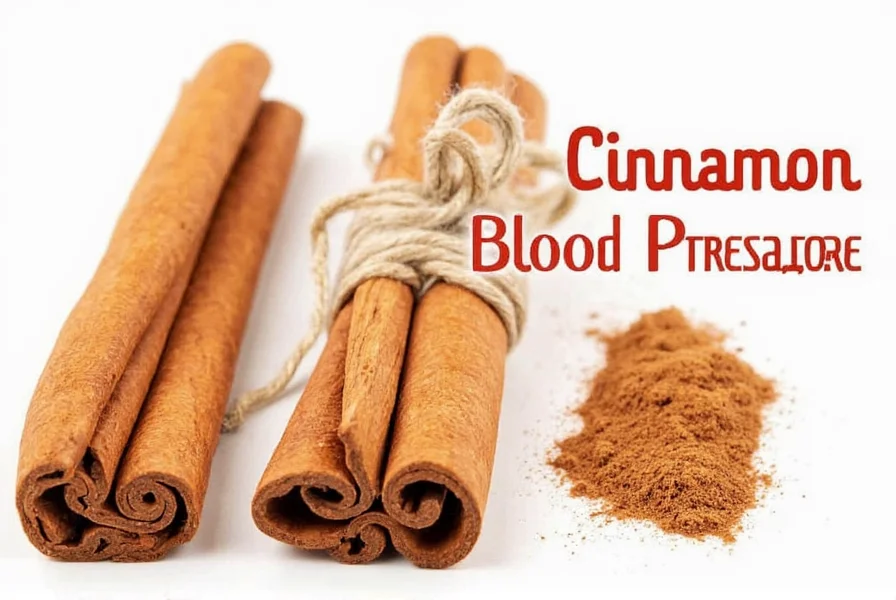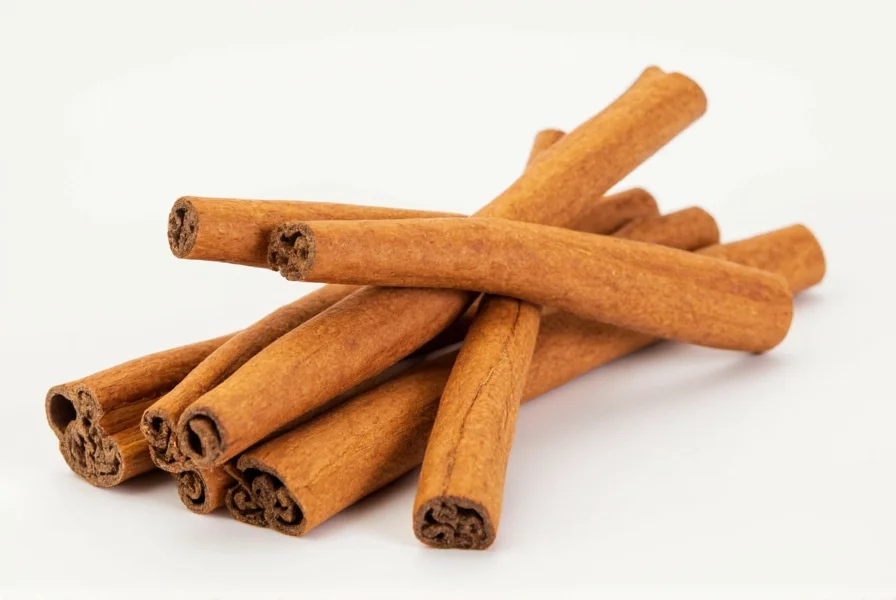Based on current scientific evidence, cinnamon may have a modest effect on lowering blood pressure in some individuals, but the research is limited and inconclusive. Most studies showing positive results were small-scale, short-term, or conducted on animals. Cinnamon should not replace conventional hypertension treatments, and anyone with high blood pressure should consult their healthcare provider before using cinnamon as a supplement.
Many people search for natural alternatives to manage hypertension, and cinnamon has gained attention as a potential option. This comprehensive review examines what current research actually says about cinnamon's effects on blood pressure, separating scientific evidence from popular claims.
The Scientific Evidence on Cinnamon and Blood Pressure
Several studies have investigated cinnamon's potential cardiovascular benefits. A 2013 meta-analysis published in Nutrition Research reviewed multiple clinical trials and found that cinnamon supplementation was associated with modest reductions in both systolic and diastolic blood pressure, particularly in patients with metabolic disease. However, the researchers noted significant limitations in the available research, including small sample sizes and short study durations.
More recent research continues to show mixed results. A 2020 study in the Journal of Dietary Supplements reported that participants taking 1,200 mg of cinnamon daily for 12 weeks experienced a statistically significant reduction in systolic blood pressure compared to the placebo group. Yet another 2022 review in Phytotherapy Research concluded that while some evidence suggests potential benefits, the current body of research is insufficient to recommend cinnamon as a treatment for hypertension.
| Study | Participants | Cinnamon Dosage | Duration | Reported Blood Pressure Change |
|---|---|---|---|---|
| Journal of Dietary Supplements (2020) | 50 adults with prediabetes | 1,200 mg daily | 12 weeks | Systolic: -5.39 mmHg Diastolic: -2.6 mmHg |
| Nutrition Research (2013) | Multiple studies (total n=237) | 1-6 g daily | 4-18 weeks | Systolic: -5.39 mmHg Diastolic: -2.6 mmHg |
| Complementary Therapies in Medicine (2018) | 60 patients with NAFLD | 1,500 mg daily | 12 weeks | No significant change |
How Cinnamon Might Affect Blood Pressure
Researchers have proposed several mechanisms by which cinnamon might influence blood pressure:
- Antioxidant properties: Cinnamon contains polyphenols that may reduce oxidative stress, which is linked to hypertension
- Anti-inflammatory effects: Chronic inflammation contributes to blood vessel damage and hypertension
- Improved insulin sensitivity: Better insulin function may indirectly affect blood pressure regulation
- Nitric oxide production: Some studies suggest cinnamon may enhance nitric oxide availability, which helps blood vessels relax
It's important to note that most of this mechanistic evidence comes from laboratory or animal studies, not human clinical trials. The actual physiological effects in humans may differ significantly.
Cinnamon Types and Their Potential Differences
Not all cinnamon is created equal when considering health effects:
- Ceylon cinnamon ("true" cinnamon): Contains lower levels of coumarin, a compound that can be harmful to the liver in large amounts
- Cassia cinnamon (common in supermarkets): Higher coumarin content, more affordable, but potentially problematic with long-term, high-dose use
For those considering cinnamon supplementation, Ceylon cinnamon is generally recommended due to its lower coumarin content, though it's typically more expensive and less widely available. When researching does cinnamon lower blood pressure naturally, the type of cinnamon used in studies matters significantly.

Practical Considerations for Blood Pressure Management
If you're exploring cinnamon supplements for hypertension, several important factors deserve consideration:
Dosage Considerations
Studies showing potential benefits typically used doses between 1,000-2,000 mg daily. However, there's no established therapeutic dose for blood pressure management. Consuming cinnamon through food (like adding it to oatmeal or smoothies) provides much smaller amounts than supplement form.
Safety and Potential Side Effects
Cinnamon is generally safe when consumed in culinary amounts. However, high-dose supplementation may cause:
- Liver toxicity (particularly with Cassia cinnamon due to coumarin content)
- Oral irritation or sores when consumed in large amounts
- Potential interactions with blood-thinning medications
- Lowered blood sugar levels, which could be problematic for those on diabetes medication
Interactions with Blood Pressure Medication
People taking conventional blood pressure medication should exercise particular caution. Cinnamon's potential blood pressure-lowering effects could theoretically enhance the effects of medication, potentially causing blood pressure to drop too low. Always consult your healthcare provider before adding cinnamon supplements to your regimen if you're taking hypertension medication.
Cinnamon vs. Conventional Blood Pressure Management
While the question can cinnamon lower blood pressure generates significant interest, it's crucial to understand cinnamon's potential role within a comprehensive approach to hypertension management:
- Evidence strength: Conventional treatments have decades of robust clinical evidence; cinnamon research is preliminary
- Effect size: Medications typically produce larger, more consistent reductions in blood pressure
- Risk profile: Approved medications have well-understood side effect profiles; long-term effects of high-dose cinnamon are less studied
- Complementary approach: Cinnamon might potentially serve as a complementary element alongside proven lifestyle changes
The American Heart Association emphasizes proven lifestyle modifications for blood pressure management, including the DASH diet, regular exercise, sodium reduction, and stress management. These approaches have substantially more scientific support than cinnamon supplementation.
Conclusion: What Should You Do?
The current scientific evidence suggests that cinnamon may have modest blood pressure-lowering effects for some individuals, but it's not a replacement for conventional hypertension treatment. If you're interested in trying cinnamon as part of your blood pressure management strategy:
- Consult your healthcare provider first, especially if you take medication
- Consider Ceylon cinnamon to minimize coumarin exposure
- Monitor your blood pressure regularly to assess any effects
- Continue all prescribed treatments and proven lifestyle modifications
- Be realistic about expectations—don't anticipate dramatic results
Research on cinnamon and blood pressure continues to evolve. As more high-quality, long-term human studies become available, our understanding of cinnamon's potential role in cardiovascular health may become clearer. For now, it's best viewed as a possible complementary approach rather than a primary treatment.
Frequently Asked Questions
How much cinnamon should I take daily for blood pressure?
Research studies showing potential benefits typically used 1,000-2,000 mg of cinnamon daily, but there's no established therapeutic dose specifically for blood pressure management. It's important to consult your healthcare provider before starting any supplement regimen, especially if you have hypertension or take medication. Excessive cinnamon intake, particularly Cassia cinnamon, may cause liver issues due to coumarin content.
Which type of cinnamon is best for lowering blood pressure?
Ceylon cinnamon (often called "true" cinnamon) is generally recommended over Cassia cinnamon for regular consumption because it contains significantly lower levels of coumarin, a compound that can be harmful to the liver in large amounts. While most studies haven't specified cinnamon type, the safety profile of Ceylon makes it preferable for ongoing use if you're exploring cinnamon blood pressure study results.
Can I replace my blood pressure medication with cinnamon?
No, you should never replace prescribed blood pressure medication with cinnamon or any other supplement. The scientific evidence on cinnamon's effects is preliminary and insufficient to support it as a primary treatment for hypertension. Abruptly stopping prescribed medication can be dangerous. Always consult your healthcare provider before making any changes to your hypertension treatment plan.
How long does it take for cinnamon to lower blood pressure?
In studies showing positive effects, changes in blood pressure were typically observed after 8-12 weeks of consistent daily supplementation. However, results vary significantly between individuals, and some studies found no meaningful changes. It's important to monitor your blood pressure regularly with a validated home monitor if you're exploring natural remedies for high blood pressure with cinnamon.
Are there any risks of taking cinnamon with blood pressure medication?
Yes, there could be risks. Since both cinnamon and blood pressure medications may lower blood pressure, combining them could potentially cause your blood pressure to drop too low (hypotension). Cinnamon may also interact with certain medications due to its effects on liver enzymes. Always discuss any supplements with your healthcare provider before adding them to your regimen, especially when taking prescription medications for hypertension.











 浙公网安备
33010002000092号
浙公网安备
33010002000092号 浙B2-20120091-4
浙B2-20120091-4